Discover The Health Sessions
The Health Sessions

The Health Sessions
Author: The Health Sessions
Subscribed: 899Played: 19,505Subscribe
Share
© 2024 The Health Sessions Pty Ltd
Description
The Health Sessions covers all aspects of health in a fun laid back manner. We connect with leading global health and wellness experts to share the best of the latest science and thinking, empowering people to turn their health and lives around.
293 Episodes
Reverse
This week I'm excited to welcome Greg, AKA 'The Hydrogen Man' to the show. Greg is a molecular-hydrogen-production expert, researcher, and host of the popular YouTube channel, Uprising144K. After studying hydrogen for many years, he implemented it into his health regimen and reversed his health challenges. In this conversation we breakdown the science behind molecular hydrogen, discuss the differences from drinking hydrogen water vs inhalation and so much more. YouTube: https://www.youtube.com/@UPRISING144K Instagram: https://www.instagram.com/uprising144k_ Holy Hydrogen: https://holyhydrogen.com Facebook: https://www.facebook.com/holyhydrogen/
Andre Obradovic is an ICF Leadership PPC Level Coach, A Primal Health Coach, a Certified Low Carb Healthy Fat Coach, & a Certified Personal Trainer. Andre is also a Founding member of the Dr. Phil Maffetone MAF certified Coach. He is an Ambassador for the Noakes Foundation, and a regular subject matter expert lecturer for the Nutrition Network (a part of the Noakes Foundation) Andre has completed 16 x 70.3 Ironmans and in 2017 he competed in the 70.3 Ironman World Championships. He has completed 18 Marathons and over 30 Half Marathons. Andre currently focuses on his regime of strength training working partime as a performance coach in the Australian Army and helping men over 40 lose weight. Website : www.andreobradovic.com Podcasts: https://andreobradovic.com/podcast/
Eva Hooft is a holistic health and detox coach who brings a unique blend of experience from her years in the modeling industry and her own journey of overcoming chronic illness, depression, and deep spiritual challenges. In this conversation we discuss how unprocessed emotions and energetic blocks can manifest in the body, the role of functional detox in true healing, and the powerful transformations that happen when we address mind, body, and spirit together. Wesite: https://www.evahooft.com Instagram: https://www.instagram.com/eva.hooft
Martin Silva is a good friend and founder of 'Optimise Your Body'. He's a dedicated fitness coach with over 20 years of experience helping his clients transform their lives from the inside out. In this conversation we discuss the diet and fitness protocols that deliver the best results, why fasting could create roadblocks and so much more. Instagram: https://www.instagram.com/martinsilvafitness YouTube: https://www.youtube.com/c/MartinSilvaWBFFPro Podcast: https://open.spotify.com/show/1B4oJAgMQE0j4mIfcBikJN?si=mutIZLQdQyi4kO--kL6UTA
Christian Van Camp is a Holistic Lifestyle & Performance Coach and founder of CVC Wellness. He specializes in helping individuals optimize their health through ancestral living principles, functional movement, and personalized wellness strategies. In this episode, we explore Christian's holistic approach to vitality — from grounding and sunlight to ancestral nutrition, circadian rhythms and the art of living in tune with nature.
In this conversation, I connect with Gabriela Rosa, a world-renowned fertility specialist, bestselling author, and the founder and clinical director of The Rosa Institute—an organisation dedicated to helping couples create healthy babies, despite previous reproductive challenges. During the conversation we discuss the most overlooked factors affecting conception including diet, lifestyle, emotional wellbeing and so much more. Learn more about Gabriela Rosa here: https://fertilitybreakthrough.com
In this conversation, Dr. Philip Ovadia, a heart surgeon, discusses the critical role of metabolic health in preventing heart disease. He shares his personal journey from being an unhealthy heart surgeon to focusing on keeping patients off the operating table through lifestyle changes. The discussion covers various aspects of metabolic health, including dietary choices, exercise, stress management, sleep quality, and the misconceptions surrounding heart disease and treatments like statins. Dr. Ovadia emphasizes the importance of understanding and improving metabolic health metrics to enhance overall well-being.
Ryan is the Head Coach and Co-Founder of GMB Fitness, where he helps people move better, feel stronger, and build real-world athleticism—without the need for extreme workouts or burnout. With a background in gymnastics, martial arts, and strength training, Ryan has spent years developing a practical, sustainable approach to fitness that prioritizes skill, mobility, and longevity. In this episode, we dive into how to build strength and flexibility for life, why traditional fitness programs often fall short, and the mindset shifts needed to train smarter—not harder.
Ange Davies is a corporate wellbeing speaker with a mission to help organisations create a positive and supportive work environment. From a successful executive and leadership career in some of Australia's largest companies to experiencing chronic fatigue, burnout and health challenges. In this podcast we discuss burnout, from the initial telltale signs to the fundamental principals to address and ultimately prevent it.
This week, I'm excited to welcome Dr Jack Kruse. Dr Kruse is a board certified neurosurgeon, health educator, and proponent of unconventional health and wellness practices. Dr. Kruse's philosophy often challenges conventional medical approaches, emphasizing the importance of natural living and reconnecting with ancestral health principles. In this episode, Dr Kruse explains the current state of play around decentralised medicine. View all episodes at www.thehealthsessions.com.au Learn more about Dr Jack Kruse at https://jackkruse.com Episode Transcript: Stuart Cooke (00:01.252) Hey guys, this is Stu from the Health Sessions and I am delighted to welcome Dr. Jack Cruz to the podcast. Dr. Cruz, how are you? Yeah, I'm very well, very well indeed. Very excited to have this conversation. But first up for all of our listeners that may not be familiar with you or your work, I'd love it you could just share a little about yourself, please. Dr Jack Kruse (00:08.76) Pretty good, how about you? Dr Jack Kruse (00:21.976) Yeah, I'm a board certified neurosurgeon in the United States. I have been living in El Salvador for the last four years. When COVID hit, I began to question a lot of the things that were present, and I decided to unretire, go back and do trauma call to see if they were lying to us or not. And I found out that they were. So then I decided to do something about it. and I wound up presenting to the Bukele administration in El Salvador and they shared some of their country-wide data with me and things that they were facing. And they asked me, what did I think was the solution? And I told them, I think you need to have a constitutional amendment put into your constitution so this would never happen again. And I think you need to re-educate some of the people in your health ministry, I think. You need to educate the doctors. You need to tell people the truth. You need to have freedom of the press. You need to embrace freedom. And this was an easy message for Bukele because he gave his people freedom almost as soon as he got elected the first time in 2019, 2020 made Bitcoin legal tender. And that basically returns freedom back to people and their, and their money. So since he did that first, and then he cleaned up the crime problem in the country, fixing the next problem actually was pretty easy. The real hard part, since you're Australian, I can imagine you know this because it's still going on in your country, that you can't get even people to admit that there was a problem with COVID. And if you can't admit there's a problem, you can't solve for X. And that's kind of where we're going. And then after me helping President Bukele, then... Stuart Cooke (01:59.77) Mm-hmm. Dr Jack Kruse (02:16.854) that information started to bleed into Bobby Kennedy's vice presidential candidate, Nicole Shanahan. And then Bobby called me about the law and then they started to use the law in their campaign. And then next year, know, this summer he joins forces with Donald Trump and then Donald Trump has got the message now too. So I would consider myself more of a lethal pathogen for probably the COVID narrative than most other people that you could probably have on. Stuart Cooke (02:45.957) Fantastic, wow, that is quite an introduction. And very interesting times ahead. Let's see what happens. mean, game on. Everything that we've been speaking about in the counterculture world of health, wellness and human performance is about to take centre stage. So really, really interested. So coming from a traditional medicine background into being one of the... one of the leaders in the biohacking and wellness space now. How do you look at traditional medicine right now? Dr Jack Kruse (03:16.664) Traditional medicine is like a sweet on the Titanic. They would like to renovate it and I would like the boat to sink. Why? Because we've gone past the point, you know, it's like a patient with metastatic cancer in just about every Oregon. You know, the time to fix it was to do the prevention earlier, but you have to realize that Stuart Cooke (03:26.829) Right. Dr Jack Kruse (03:42.636) The people that control big pharma really are the bankers. It's a, it's a very big story. And when I mean big, complicated because it's a Leviathan to know where all the missing pieces and parts are, you know, it take a lot longer time than you have allocated to talk to me. But in the last, I would say six months in the United States, I have been doing a ton of podcasts. Why? Because people in the United States, unlike probably Australia, unlike Canada, unlike Europe, they're ready for this discussion about really what happened. And I think, you know, the people in the States voted that way on November 5th, that they were sick and tired of being lied to. And we didn't go down the path that, you know, Canada went, you guys went, Europe went, or even places like South America went. We decided that we're still for the freedom of speech. Stuart Cooke (04:16.12) Hmm. Dr Jack Kruse (04:42.456) And we're still fighting for the truth. We're not going to have digital IDs or we're saying right now that we're not going to have central bank digital coins. But I don't know if that's going to be true or not. I think there may be a path to that because the people that truly control the United States, which are the bankers and the industrial military complex, may have different designs because effectively, you know, what Trump and Bobby Kennedy are bringing to the table right now, really is the vaccine for Big Pharma. It's really the vaccine for the bankers. It's quite a lot to swallow. And like I said, one of my good friends in this story, Kevin McKiernan, who's the person that found SV40 in the jabs, said it's kind of like expecting Trunk and Bobby to go into the Death Star and somehow make Darth Vader nice. I don't know if that's really possible. But I certainly think that it's worth an opportunity to do it. I think other places in the world have actually got collateral effects from COVID. And that's actually what the people who were doing this, the Agenda 201 people, the WEF people, I know there's a lot of people in Australia that are now really fighting hard against this. But you guys already got digital ID. You guys are. are headed towards a CBDC. you know, basically they're interested in making us economic slaves on the plantation. And it's kind of the way in which they've done it is, I'm going to tell you, it's brilliant. It's a brilliant plan. It's been crafted over 120 years and they've done small little changes, insidious changes that you're like, come on, this isn't that bad. But when you add the whole collection up, you know, it's not a good situation. And they've used medical tyranny to pull it off. They've also used financialization, you know, through rehypothecation of money. That's actually the base problem for every country, including my own. And it's actually the base problem that was here in El Salvador. But El Salvador was the one country who started to reverse this trend because during their civil war, Dr Jack Kruse (07:09.292) that the United States CIA effectively started, you know, 30 years ago, they lost their fiat currency called the Cologne and they started to use, you know, U.S. dollars as their economy. So they're completely, you know, dollarized and that creates, you know, a huge problem. when Bukele got in and broke the cycle of corruption that was down here, the first thing he did was, I'm going to give my people a parallel monetary system. that's not tied to the Federal Reserve. And I don't think people like all over the world realize how big a thing that was. And believe it or not, that's actually what got me to come to El Salvador because I realized that this type of maneuver was like what George Washington did for the United States where was, but Kelly was like George Washington on steroids. Why? Most people don't know the history. of the United States well enough, especially you guys, since you're a commonwealth. Thomas Jefferson and James Madison wrote in Federalist Papers before our founding documents were done. They actually had fights with each other and a guy named Alexander Hamilton, which you probably heard. And Jefferson was ardent that the biggest problem with the Bank of England was that their level of usury. and also the way the bank handled business. And he said that no government will ever be successful if you allow the bankers to have this level of control. And Alexander Hamilton took the other side and said, well, that's all well and good, but if you're to create a country like we're trying to do here in the United States, you still have to have a monetary system. right now, going back to the Magna Carta, the Britons have done a pretty good job for about 1,000 years. Why don't we just roll with that until something comes up? And we didn't have a better form of money, you know, at that time. But the funniest part of the story is when Jefferson becomes president after George Washington, his vice president, Aaron Burr, kills Alexander Hamilton in a duel. Like this problem has not gone away in the United States. And I would say to you, it went all the way up into the Bitcoin Nashville event in Dr Jack Kruse (09:29.816) You know, July this year, when you had both Trump and Bobby, when they were both running for president, both of them said that they were about making Bitcoin a reserve currency to back the US dollar, you know, to make it affect how it used to be prior to 1971 when it was backed up by gold. And that's a good step. You know, for me as a Bitcoin maximus, it's not what I want to see. But is that a really positive step? you know, for the United States, yes. If it's a positive stuff for the United States, when we do something, everybody else usually follows. The interesting part is, I don't think Britain is gonna be doing that now because what did they do in their election? They voted for a version of Kamala Harris with a
This week, I'm excited to welcome Dr Peter Martone to the podcast. Dr. Peter Martone has been dedicated to creating the happiest, healthiest most well-rested tribe of people on the planet for over the past 20 years. He is the owner of Atlantis Chiropractic Wellness Centers and the inventor of the Neck Nest, a revolutionary new pillow that is designed to improve your posture while you sleep. Dr. Martone's techniques have been featured nationally on CBS, NBC, ABC and FOX news stations and currently travels the country teaching people regain their health by mastering the art of living a healthy lifestyle. Some questions asked during this episode: How do you define good quality sleep? What are the quick wins to help us feel more rested upon waking? What are your thoughts about sleeping position This week, I'm excited to welcome Dr. Peter Martone to the podcast. Dr. Martone has been dedicated to creating the happiest, healthiest, most well-rested tribe of people on the planet for over the past 20 years. He's the owner of Atlantis Chiropractic Wellness Centres, and the inventor of the Neck Nest, a revolutionary new pillow that is designed to improve your posture while you sleep. In this episode, we talk about why posture matters during sleep and discuss many other strategies to get the best nights rest. Over to Dr. Martone. (00:01:21) Hey guys, this is Stu from 180 Nutrition, and I am delighted to welcome Dr. Peter Martone to the podcast. Dr. Martone, how are you? Dr. Martone (00:01:30) I'm doing absolutely fantastic, Stu. Thank you so much. Just got off of a really cool snow mountain biking ride. So I'm energized and we're ready to deliver. All amped up, real psyched up right now. Stu (00:01:44) Oh, unbelievable. Look, I can't wait to get into this conversation. Sleep is a big one for so many people and well, first up, for all of our listeners that may not be familiar with you or your work, I'd love it if you could just tell us a little bit about yourself, please. Dr. Martone (00:01:58) Yeah, no, thanks. I appreciate that. So one of my missions has always been to help people maximize their life, right? To be able to help them optimize their performance. And I was just sharing with you, I studied my exercise physiology out there in Australia, down in The Gong. And I was a professional trainer, I'm an exercise physiologist, I'm a chiropractor. So I've had all of this education on nutrition and exercise and being able to put it all together and really coming down to the mindset of your health is a product of your daily rituals. And your daily rituals are driven by your beliefs. So if you are not happy with where you are health-wise, whatever it may be, you need to look at how you're thinking and who you're trusting as your resources for your health. And really what we stand for is education on being a different voice and a more empowering message and being able to help people navigate through all of the disinformation that's out there and being able to identify the state of health that they choose. And now we're doing that through sleep.
This week, I'm excited to welcome Anoop Asok and Ann-Maria Tom to the podcast. Together they are known as the weight loss whisperers who focus on metabolic mastery and hormonal health to provide their clients with real results. In this episode, we discuss where so many of us go wrong when wanting to lose weight, the importance of calories versus quality of food, and the strategy to actually keep the weight off for good. Over to Anoop and Ann-Maria. Some questions asked during this episode: Where do many of us go wrong when wanting to lose weight? How can we ensure we keep the weight off? How important are calories vs the quality of food we eat? https://180nutrition.com.au/ This week I'm excited to welcome Anoop Asok and Ann-Maria Tom to the podcast. Together they are known as the weight loss whisperers who focus on metabolic mastery and hormonal health to provide their clients with real results. In this episode, we discuss where so many of us go wrong when wanting to lose weight, the importance of calories versus quality of food, and the strategy to actually keep the weight off for good. Over to Anoop and Ann-Maria. (01:15) Hey, guys. This is Stu from 180 Nutrition and I am delighted to welcome Ann-Maria and Anoop, also known as the weight loss whisperers to the podcast. Guys, how are you both today? Ann-Maria (01:27) We're doing fantastic. We are in the middle of winter here in Canada. It's cold, but it's good. Stu (01:37) Exactly right. Ann-Maria (01:38) [inaudible 00:01:38] here today. Stu (01:40) Fantastic. Well, I really appreciate you sharing some of your time. First up, for all of our listeners that may not be familiar with you or your work, I'd love it if you could just tell us a little bit about yourself, please. Ann-Maria (01:50) For sure, my name is Ann and this is Anoop and we are husband and wife. We are fitness coaches and we basically teach people how to lose weight while eating whatever they want, that's what we do. The reason why we got here and all that dates back to three, four years before when COVID started, everyone was sick. (02:16) We are also registered nurses in the ER. We were working in the emergency room at that point in time. We saw a lot of younger population coming through the emergency doors with variety of health issues, especially when we were in the middle of that COVID season. One of the reasons why we started our coaching back then. (02:36) One of the other reasons is also just our journeys, personal journeys, which we'll talk about here in a second, but we literally teach people how to lose weight by [inaudible 00:02:48] Stu (02:51) Well, it can be so confusing because there are a number of different strategies. If you were to jump on the internet right now, you'd see that some people say it's just all about the calories, that's all it is. Whereas other people say, "No, no, it's more about the quality of the food that you eat." Whereas other people say it's about the timing and maybe a mixture of those two as well. (03:12) Maybe there's a personal aspect to it where we need to look at our own physiology in terms of our genetics and our digestive system, et cetera things like that. I guess the question then in my eyes is that where do many of us go wrong? What are the glaring mistakes that we make when we want to lose weight? Ann-Maria (03:33) That's a great question. I think the reason why most of us or most of us are not able to lose weight and where we fall apart is the part that we go all in when it comes to the diet part. We cut a lot of food, then we go into this binge-eating and then we do a ton of exercise. There is not enough balance, I would say, in what we are trying to do, and that's where most people fall short. (04:03) As much as it is true that we need to be in a caloric deficit for us to lose weight, you have to make sure also that your body is ready for it. I don't know how many of you listening this know this, but yes, caloric deficit is required for you to lose weight, but most of the weight loss happens in our brain because the brain is what regulates the weight loss. (04:26) Our brain is literally our thermostat, meaning it wants to keep us in homeostasis, meaning our brain always prioritizes survival over weight loss. One of the biggest mistakes people are making these days is eating very few calories, cutting too much food all at once. Whenever our brain senses too much weight loss happening, again, it goes back to when I said it tries to bring us back to that homeostasis, the vital mechanism. (04:58) How does it do it? By really increasing, upping our hunger cues, making those donuts in the break room feel much more enticing and yummy than it normally is. Physiologically, our metabolic rate also slows down so that we can conserve more energy and send that right back to building up the [inaudible 00:05:21]. Technically, when you are trying to ease eat less food, your brain wants to cheat more. (05:28) The hunger is what is going to really give you in those situations. Sometime we don't even realize when that we are in such a drastic caloric deficit, we end up eating more at the end of the day. When you are below reaching that set points, metabolically speaking, you end up eating more to maintain that same level of hunger you had before. (05:55) This is why it's really impossible for you to maintain that weight that you lost with intense calorie restriction. One of the reasons, biggest reason why yo-yo dieting is the best diet out there for weight gain not for weight loss. Yes, to answer your question, eating less food and [inaudible 00:06:15] For full interview and transcript: https://180nutrition.com.au/uncategorized/anoop-asok-ann-maria-tom-interview/
Questions asked in the episode How can we determine the best diet for our body? What can we expect from your book 'FoodFrame? Where should we start when wanting to heal https://180nutrition.com.au/ This week I'm excited to welcome Risa Groux to the podcast. Risa is a functional nutritionist and certified autoimmune coach. She has a focus on the root causes of her client's health concerns and treats them naturally through proper testing and subsequent dietary and supplement treatment. In this episode, we discussed the best way to tailor your diet to your health status, the optimal place to start when wanting to address health issues, and dig deep into her dietary methodology called FoodFrame. Over to Risa. (01:19) Hey guys, this is Stu from 180 Nutrition and I am delighted to welcome Risa Groux to the podcast. Risa, how are you? Risa (01:26) I'm doing great, thanks. Thanks for having me. Stu (01:29) Oh, look, I'm really keen to delve in and listen to some of your learnings, I guess, for want of a better word this morning, because I know that you've covered a lot in the terms of health and wellness, and human performance at a whole. But, first up, for all of our listeners that may not be familiar with you or your work, I'd love it if you could just tell us a little bit about yourself, please. Risa (01:52) Sure. I am a functional nutritionist, which means I've been trained in functional medicine, so I do a lot of testing with extensive blood work and stool testing with everyone I work with in my office. I work from everyone from professional athletes to adults, kids, anybody with health issues. I do a lot of gut, or a lot of gut issues, blood sugar dysregulation, thyroid dysregulation, hormones, random... I'm usually the last stop when they come to see me after they've called the doctors and they still have this nagging cough or whatever it might be, a major health issue. For full transcript and interview: https://180nutrition.com.au/180-tv/risa-groux-interview/
This week I'm excited to welcome Chad Price to the podcast. He is a serial entrepreneur with over ten years of experience in multiple industries. His most notable company, Kettlebell Kings, was started from scratch and now it is a multimillion dollar, Fortune 5000, and international company. He is also a former student athlete that graduated from Rice university with an extensive background in all sports. Additionally, He's a Hemp and cannabis advocate that owns a lifestyle brand, Life Grows Green, which promotes health and wellness using all natural ingredients and hemp products. Some questions asked during this episode: Why should we pick up a kettlebell in the gym/home? Can I get a whole-body workout using just kettlebells? How long should a typical kettlebell workout take? http://180nutrition.com.au/ Stu This week, I'm excited to welcome Chad Price to the podcast. Chad is an athlete, entrepreneur, author, and founder of Kettlebell Kings, the number one supplier and community in the kettlebell space. In this episode, we discuss why you should consider including Kettlebells into your workout, the best way to use them, and the quickest way to get the results you want. Over to Chad. (01:10) Hey, guys. This is Stu from 180 Nutrition and I am delighted to welcome Chad Price to the podcast. Chad, how are you mate? Chad (01:16) I'm doing great today. Thank you for having me. Stu (01:19) No, look, thank you. Thank you again for sharing some of your time. I know you're super busy. But first up, for all of our listeners that may not be familiar with you or your work or your companies, et cetera, I'd love it if you could just tell us a little bit about yourself, please. Chad (01:32) Sure. My name's Chad Price, currently, the CEO of Life Grows Green and my consulting agency, Price Digital Consultants. My background is in athletics and sports. After I graduated from Rice University, I started a company... I started several companies, but my most notable company is Kettlebell Kings, and that was a 10-year journey that I just culminated at the beginning of 2022. (01:58) And then, I wrote a book about that journey and starting your own business called Preparing for Battle and trying to help people get mentally prepared for what the next step is in terms of switching from entrepreneurship. I mean, switching from employee to entrepreneurship or transitioning from college or high school, wherever that is, and going into the entrepreneurship journey, having the correct mindset of doing so. Stu (02:21) Fantastic. Wow, what a journey. It sounds like you're muscled up and ready to attack pretty much anything. So, I'm keen today to touch on the kettlebell side of things because I know that it's not very often that you get to talk to a kettlebell king and you'd be one of them, right? So, and also, cognizant of the hemp and CBD stuff, very, very interesting. But we live in Australia, and so that's a no-no for us, unfortunately at this point in time. (02:53) So, I thought we'd dial into your journey with Kettlebell Kings and just kick off for our audience in terms of no doubt, we've all been to the gym and we've seen the rack of kettlebells, but they're next to the dumbbells. They might be next to the resistance bands, which are next to the free weights, which might be next to the assisted machines. Why should we pick up a kettlebell? For full interview and transcript: https://180nutrition.com.au/180-tv/chad-price-interview/
This week I'm excited to welcome Cody Watkins to the podcast. Dubbed the King of Transformation. Cody is a renowned online fitness coach. In 2018, he underwent emergency open heart surgery that was required to escape death. He made an astonishing comeback, winning a bodybuilding competition, just 11 months post-surgery. In this episode, we discussed the subtle art of building lean muscle while losing body fat, the importance of cardio when wanting to lean up and so much more. Over to Cody. Some questions asked during this episode: What's the secret to building lean muscle and losing fat at the same time? How important is cardio when wanting to lean up? Should we lift heavy for less reps or lighter for more? https://180nutrition.com.au/ Stu: This week, I'm excited to welcome Cody Watkins to the podcast. Dubbed the King of Transformation. Cody is a renowned online fitness coach. In 2018, he underwent emergency open heart surgery that was required to escape death. He made an astonishing comeback, winning a bodybuilding competition, just 11 months post-surgery. In this episode, we discussed the subtle art of building lean muscle while losing body fat, the importance of cardio when wanting to lean up and so much more. Over to Cody. (01:20) Hey guys, this is Stu from 180 Nutrition and I am delighted to welcome Cody Watkins to the podcast. Cody, good morning, good afternoon for you. How are you mate? Cody (01:30) I'm doing well. Thanks for having me. Stu (01:32) No, I really appreciate your time. Well, looking at your socials and all of your online activities, I know that you're a very busy man, so we'll get into the questions in a second. But first up, for all of our listeners that may not be familiar with you or your work, I'd love it if you could just tell us a little bit about yourself, please. Cody (01:48) Yeah, so I got into fitness pretty early, 15, 16 years old. I think very typical for any male, you're a little bit softer than you like to be, right? You got to get those abs, get it checked, and I just started, I guess, chasing the dragon, so to speak. So, I just kept pushing the size of limit. I got into powerlifting, got into bodybuilding. I did that obviously along the way. It's really easy to get into training since that's all you're doing. So that's where I kind of fell into that with my love for that, and then got into coaching, competed for 12 years in bodybuilding. Ended up having a few setbacks along the way that I had to learn to overcome, the biggest being open heart surgery. That was kind of a side blast, I didn't see that one coming. And yeah, I had a birth effect that I didn't know about. (02:31) I ended up being in stage four heart failure. My heart was like three times the size it should be, and then I got that all patched up. I ended up competing in a bodybuilding show one year later just to see if I could. I wanted to push the limit, but I like to take the reasons or excuses out for when it comes to clients because we'll build hurdles over things that maybe aren't. So, I figured if I could push the envelope, it would help me as a coach overall, because it kind of takes that excuse barrier now when it comes to working with people. Stu (02:57) Oh, my word. So, tell me, when you had that surgery. And I'm guessing with a character like yourself. You live and breathe for working out, feeling good, moving your body. Were you ever told that you've got to take this super, super easy? I wouldn't recommend that you pick up heavy weights or stretch your heart in any way? Was that on the board of the recommendations? Cody (03:24) Absolutely. So, going into it, I didn't know I had it. I had symptoms of heart failure the whole time, but I thought it was just bodybuilding. It was rough, right? I'm pushing through it, grueling along, probably maybe TMI. But man, I was throwing up probably one to two workouts a month, just thought I was lifting hard, but that was my heart not keeping up, right? Stu (03:41) Yeah. Cody (03:42) But anyways, when I found out, my heart valve actually ripped. I had birth defect in it. So, they were like, if this would've happened while you're training, you'd be dead. And the day before I was blasting out legs, just crushed. I was six weeks out from a bodybuilding show. So, I had just DEXA scan at like 6% body fat. I'm like, "Easiest contest prep yet. I'm so far ahead of the game. This is great." And then the next day I was in the hospital dying and had no idea, just side cast. For full interview and transcript: https://180nutrition.com.au/180-tv/cody-watkins-interview/
This week I'm excited to welcome Rodrigo Perez to the podcast. Rod has helped and trained countless athletes from professionals and elite performers, through to groms and the everyday athlete. His movement methodology and holistic longevity and wellness approach has helped countless of his athletes improve the way they move, to become more aware of their bodies, improve their nutrition, break through plateaus in their performance and ultimately become the optimal version of themselves. Over the last 2 decades he has been broadening and deepening his knowledge. Working with multiple modalities to achieve better mobility and precision of movement, better breathing, self-regulation and mind focusing techniques – we continue to help amateur and professional clients achieve their health and performance goals. Classes, programs, seminars and consultations are focused, professional, challenging, and yet playful – in order to best prepare clients to be the protagonists of their own wellbeing and achievements. Some questions asked during this episode: How should we move if we want to live a long and pain-free life? What exercises shouldn't we be doing if we have lower back problems? How long should we spend on daily mobility? https://180nutrition.com.au/ This week I'm excited to welcome Rodrigo Perez to the podcast. Rodrigo is a performance specialist whose movement, methodology and holistic longevity and wellness approach has helped countless athletes improve the way they move. In this episode, we discuss the importance of mobility if we want to live without aches and pains as we age. We talk about the movements we shouldn't be doing if we have lower back problems, the length of time we should spend each day on mobility and so much more. Over to Rodrigo. (01:18) Hey guys, this is Stu from 180 Nutrition and I am delighted to welcome Rodrigo Perez to the podcast. Rodrigo, how are you? Rodrigo (01:25) Very good. Yourself, Stu? Stu (01:27) Excellent. It's funny because we met many, many years ago when Guy was involved in the business and I know that he was a good friend of yours. I have been seeing your messages on social media continually for so long and I thought I've got to catch up with you because I can see what you're doing really aligns with a lot of the stuff that our audience is really, really interested in. So, first up, for all of our listeners then that may not be familiar with you or your work, I'd love it if you could just tell us a little bit about yourself please. Rodrigo (02:05) My name is Rodrigo. I've been living in Australia for the last 22 years. Been coaching for 26 years. So I am Spanish, half Brazilian. Mom, is a purely Spanish person, and grew up in Brazil probably half of my life was there, and moved to Australia, was a coach there as well. Finished university there. Then exercise science and I am exercise physiologist. Moved to Australia and had a big goal to first learn English. The funny thing is just know learning the Aussie language. So I still chat with you because I was three years in Australia and I went to London. Over there I had a manager there, and then one of the gymnasiums I was working there as a swim coach. They turned to me and they said, "Where you learned your English?" I say, "Well, in Australia." They say, "No, you learned Australian language mate." For full interview and transcript: https://180nutrition.com.au/180-tv/rodrigo-perez-interview/
This week I'm excited to welcome Bronwyn Schweigerdt to the podcast. Bronwyn is a psychotherapist with a master's degree in counseling and nutrition. She's commonly referred to as an evocative psychotherapist who helps people reconnect to their anger and heal their relationship with themselves. In this episode, we discuss the traits that may point to an underlying anger issue, the telltale signs that we aren't processing emotions in a healthy way, and strategies to resolve internal issues. Some questions asked during this episode: What is an evocative psychotherapist? How does conventional anger management differ from your approach? How might we know that we aren't processing our emotions in a healthy way? https://180nutrition.com.au/ This week I'm excited to welcome Bronwyn Schweigerdt to the podcast. Bronwyn is a psychotherapist with a master's degree in counseling and nutrition. She's commonly referred to as an evocative psychotherapist who helps people reconnect to their anger and heal their relationship with themselves. In this episode, we discuss the traits that may point to an underlying anger issue, the telltale signs that we aren't processing emotions in a healthy way, and strategies to resolve internal issues. Over to Bronwyn. (01:18) Hey guys, this is Stu from 180 Nutrition and I am delighted to welcome Bronwyn Schweigerdt to the podcast. Bronwyn, how are you? Bronwyn (01:26) I'm good. Thank you for saying my first name very well. It's rare. Stu (01:32) Oh, well, Bronwyn is a very popular name in Australia. Bronwyn (01:36) I know. You have a nickname. You guys call me Bronny. Stu (01:39) Bronny. Bronwyn (01:40) I love it. Stu (01:40) Exactly right. I think I know probably four people called Bronwyn. Bronwyn (01:45) Yeah, it's crazy. Stu (01:47) I was more concerned with your surname, so I don't think that I was too far off the track. I've listened to a few podcasts. Bronwyn (01:55) No, I didn't notice anything. Stu (01:59) Well, look, thank you so much again for your time, but first up, for all of our listeners that may not be familiar with you or your work, I'd love it if you could just tell us a little bit about yourself please. Bronwyn (02:09) Yeah, so I am a licensed marriage and family therapist in California. I came about becoming a therapist, I have an interesting journey that is comical, I guess. So I came to become a therapist later in life because I myself really, really, really needed a good therapist because I fell into a pit of depression where I was barely functioning and I was getting physically ill. So I sought out a therapist and as dysfunctional as I was and as hard as my life was, I thought to myself, I know even right now I could do a better job than she's doing to me. And then I found other therapists and I felt that way with all of them. So I thought I'm going to go back to school and get a second master's degree and become a therapist, and that was part of my healing journey, actually. For full interview and transcipt: https://180nutrition.com.au/180-tv/bronwyn-schweigerdt-interview/
This week, I'm excited to welcome Natalie Kovarik & Tara Vander Dussen to the podcast. Natalie Kovarik and Tara Vander Dussen are the co hosts of the Discover Ag docu-series as well as the popular podcast Discover Ag. Collectively they have been advocating for agriculture online on various social media platforms for over 10 years. Together they have fostered a community of over 255k, spoken on stages across the nation and globe, and empowered a community too reconnect to agriculture and the hands that feed us. Some questions asked during this episode: We're told that cattle are heavily contributing to climate change, what are your thoughts Please explain the difference between monocropping vs regenerative agriculture. How important is animal protein compared to plant-based alternatives?
This week, I'm excited to welcome Megan Lyons to the podcast. She is a wellness expert and owner of The Lyons' Share Wellness. Megan is a Harvard graduate, board-certified holistic nutritionist and founder of The Lyons' Share Wellness, where she helps people achieve the healthiest and happiest selves. In this episode, we discuss adrenal dysfunction, the telltale signs, most common causes, and the path to follow when wanting to heal. Over to Megan. Some questions asked during this episode: Tell us about the importance of adrenal health? How can we best test the health of our adrenals? What are the tell-tale signs of adrenal dysfunction? https://180nutrition.com.au/ This week, I'm excited to welcome Megan Lyons to the podcast. Megan is a Harvard graduate, board-certified holistic nutritionist and founder of The Lyons' Share Wellness, where she helps people achieve the healthiest and happiest selves. In this episode, we discuss adrenal dysfunction, the telltale signs, most common causes, and the path to follow when wanting to heal. Over to Megan. (01:13) Hey guys, this is Stu from 180 Nutrition, and I am delighted to welcome Megan Lyons to the podcast. Megan, good morning. How are you? Megan (01:22) Good morning. It's good afternoon over here, but I am doing great and so excited to talk to you today. Stu (01:29) Fantastic, fantastic. First up, for all of our listeners that may not be familiar with you or your work, I'd love it if you could just tell us a little bit about yourself, please. Megan (01:39) Sure. Well, my name's Megan Lyons. I live in Dallas, Texas, and I own a business called Lyons' Share Wellness, where I like to describe it as I get my hands in as much possible related to wellness as I can possibly handle. I like to do a lot of one-to-one work with people. I have a podcast, I have group programs, I have a blog. I do speaking. I do everything I possibly can because this area of life really lights me up. I have so much passion around nutrition and wellness and just the ability that we all have to make ourselves feel much better and go enjoy life at a more full capacity.
This week I'm excited to welcome Dr Richard Jacoby to the podcast. Dr. Richard Jacoby is Board-certified Podiatrist and celebrated author. He is a renowned foot and ankle specialist with over 20 years experience with regenerative medicine. At Innate Healthcare Institute he brings his knowledge and experience of the lower extremities to help avoid surgery for all conditions related to the lower extremities, including pain, neuropathy, plantar fasciitis, sprains, fractures, and many more. Dr. Jacoby is also the Medical Director of Valley Foot Surgeons. He has won the Phoenix Magazine Top Docs Award 4 separate times (2003, 2005, 2008, and 2010), showing both his dedication to patient care along with foot and ankle expertise as a leading Phoenix and Scottsdale area Podiatrist. Some questions asked during this episode: Why do many of us crave sugar? Which everyday foods (that may be perceived as healthy) could derail us? Should we be concerned about consuming 'natural sugars' like fruit?


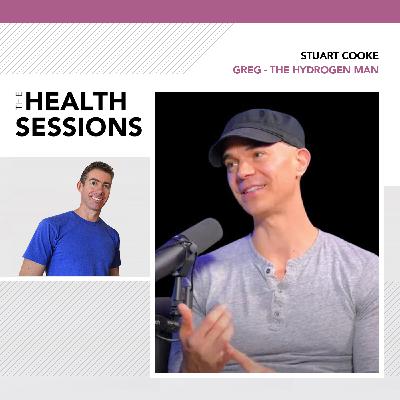

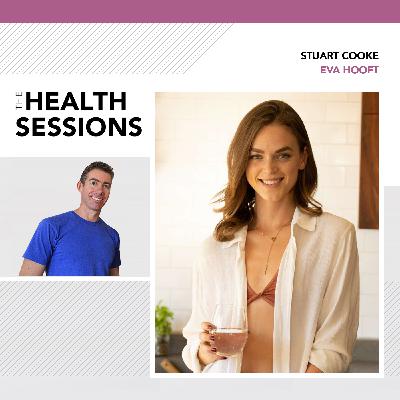
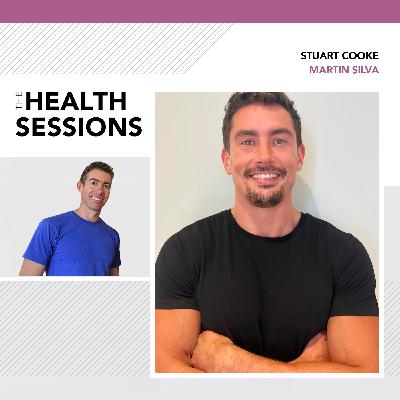

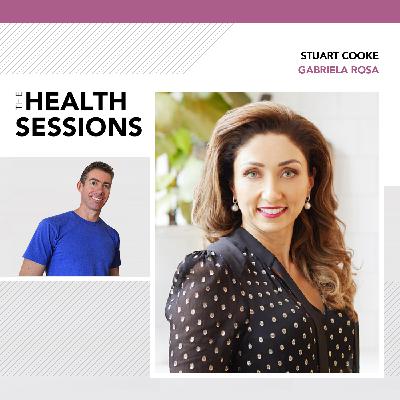

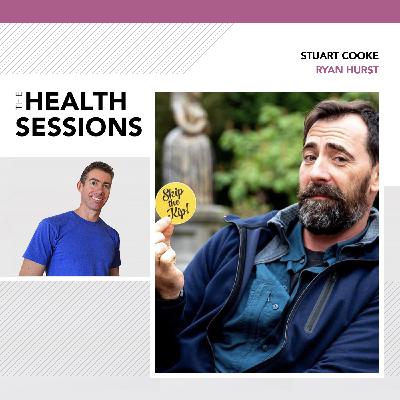
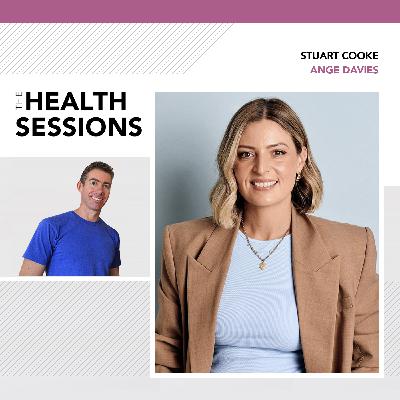
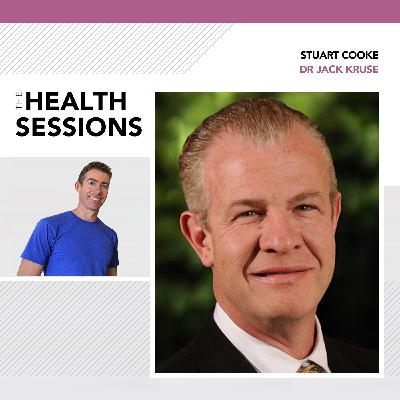
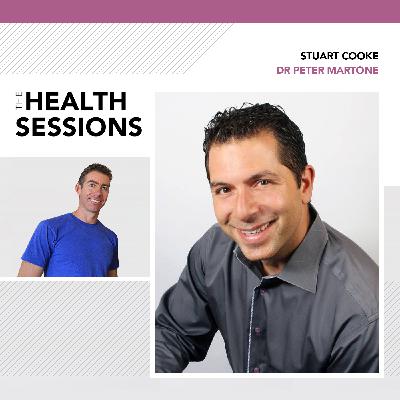
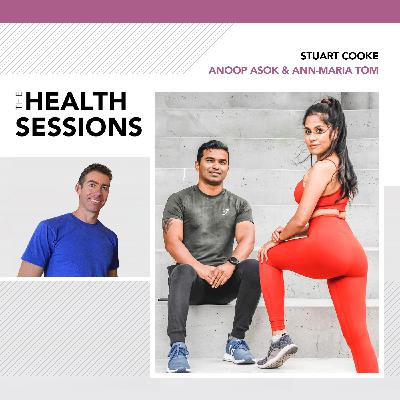
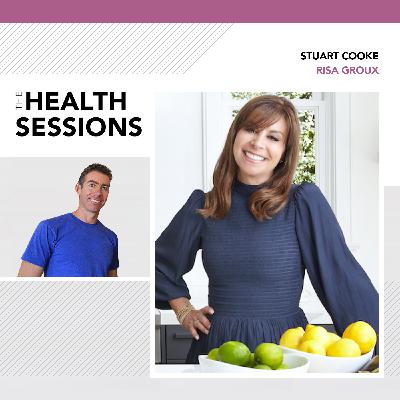
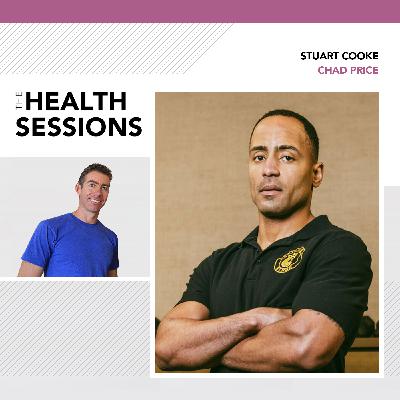
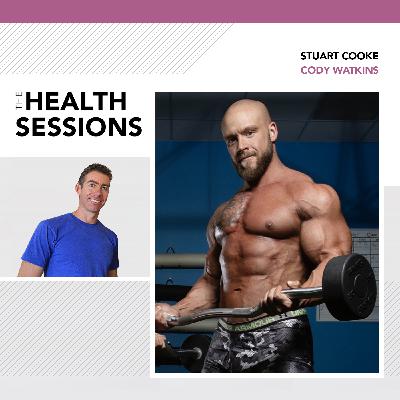
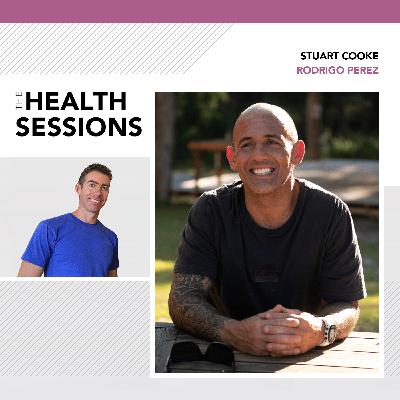
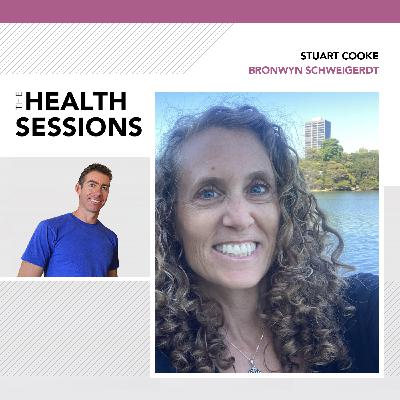
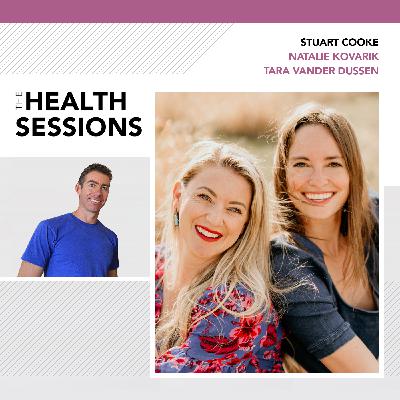





Very eye opening podcast!! Thank you for all the valuable information shared and for navigating the conversation so well with great questions!
I cant the interviewee very well but your voice is very loud. Wish Audio could be improved
holy smokes the sound quality blows
get to the god damn point not obfuscation!